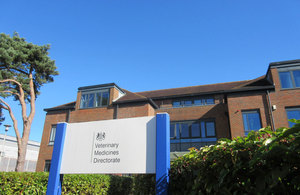- new simplified travel system with a single red list and the rest of the world comes into force from 4 October at 4am
- fully vaccinated travellers from over 50 countries and territories have simpler, cheaper rules, with just a single post arrival test needed
- changes come as UK government welcomes fully vaccinated residents of over 50 countries and territories who can travel like fully vaccinated UK travellers
From 4am today (Monday 4 October 2021), the UK’s new travel system comes into force with countries and territories categorised as either red or the rest of the world.
The new simplified travel system also means that eligible fully vaccinated passengers and eligible under-18s returning from over 50 countries and territories not on the red list, can do so without needing to complete a pre-departure test (PDT), a day 8 test or enter a 10-day self-isolation period, making it easier for those travelling – whether that’s to see friends and family, or on business trips.
As announced last month, the new rules also mean that from later in October eligible fully vaccinated passengers with an approved vaccine and recognised certificate from a country not on the red list will be able to replace their day 2 test with a cheaper lateral flow test, reducing the cost of tests on arrival into England. The government aims to have this in place for when people return from half-term breaks.
Anyone testing positive will need to isolate and take a confirmatory PCR test, at no additional cost, which would be genomically sequenced to help identify new variants.
Transport Secretary Grant Shapps said:
We are accelerating towards a future where travel continues to reopen safely and remains open for good, and today’s rule changes are good news for families, businesses and the travel sector.
Our priority remains to protect public health but, with more than 8 in 10 people now fully vaccinated, we are able to take these steps to lower the cost of testing and help the sector to continue in its recovery.
Also from today, under-18s from the over 50 countries whose vaccination status the UK recognises will not need to present a negative PDT before travelling to England. This applies regardless of their vaccination status.
All under-11s, regardless of where they are travelling from, are already exempt from pre-departure testing for arrival in the UK. If children aged 11 and over are not travelling from one of the 50-plus countries and territories where vaccines are recognised, they will be required to follow the same rules as for unvaccinated passengers.
From today, we are expanding our vaccinated policy to a further 18 countries, including the United Arab Emirates, Japan and Canada. The recognised vaccines are Pfizer BioNTech, Oxford AstraZeneca (including Covidshield), Moderna and Janssen (J&J).
This builds on the UK government’s successful pilot phase with Europe and the US, and brings the total number of countries in scope of the policy to over 50, with more countries and territories being added in the coming weeks.
Those eligible must have a document from a national or state-level public health authority that includes certain information including name, date of birth and vaccination details, as set out in guidance on GOV.UK.
The government has maintained it would take a phased approach to recognising vaccines administered by other countries and territories, building on the success of the pilot with the US and Europe.
Fully vaccinated residents in other countries not yet part of the inbound policy, as well as those partially vaccinated, will still have to take a pre-departure test, PCR tests for day 2 and day 8 after arrival, and self-isolate for 10 days, with the option to test to release after 5 days.
The UK government is continuing to work with international partners as we seek to more regularly expand the policy to further countries and territories.
All arrivals will still need to fill in a passenger locator form ahead of travel. Travellers should continue to check GOV.UK travel guidance including Foreign, Commonwealth and Development Office (FCDO) travel advice before, during and after travel to keep up to date with entry requirements and ensure compliance with the latest COVID-19 and non-COVID-19 regulations for the country being visited. Passengers should also carefully check booking conditions prior to booking.


